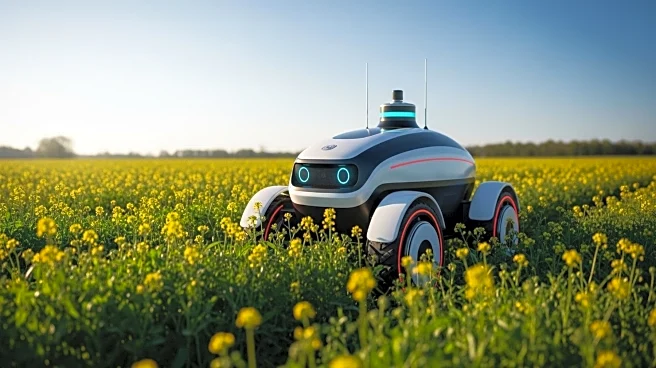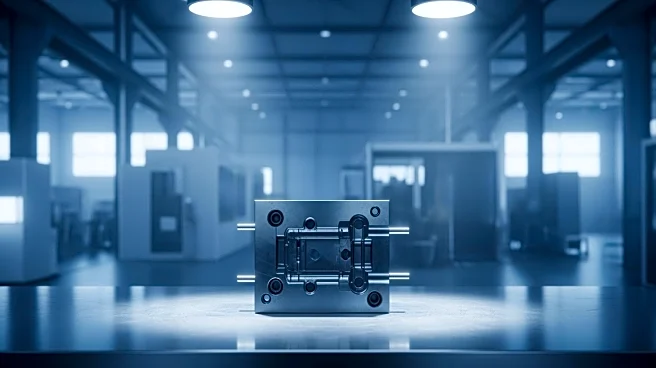What's Happening?
Burro, a company specializing in autonomous robots for outdoor work, has announced a significant expansion of its robot fleet at Petitti Family Farms in Lake County, Ohio. This expansion involves increasing the number of Burro Grande robots from 10 to 25 by the end of the year. These robots are designed to tow heavy payloads of plants and materials across the farm's 400 acres, and the expansion aims to introduce new workflows such as autonomous spraying. The initiative is part of a broader effort to address labor shortages and boost productivity in agriculture through automation and AI technologies. Petitti Family Farms, which spans over 4,000 production acres, has embraced the technology, with employees quickly adopting the robots for production work.
Why It's Important?
The expansion of Burro's autonomous robot fleet at Petitti Family Farms represents a significant step towards addressing labor shortages in the agricultural sector. By enhancing productivity through automation, farms can maintain operations despite challenging weather conditions and labor constraints. This move is crucial for the long-term viability of labor-intensive industries in the U.S., as it leverages technology to increase efficiency and reduce dependency on human labor. The successful integration of these robots into farm operations could set a precedent for other farms, encouraging wider adoption of automation in agriculture.
What's Next?
As Burro continues to expand its fleet, the company aims to further develop its technology to meet the evolving needs of the agricultural sector. The partnership with Petitti Family Farms serves as a blueprint for future collaborations, potentially leading to the deployment of even more robots across various operations. The focus will be on proving the reliability and scalability of the technology, which could lead to broader acceptance and integration of autonomous robots in agriculture. This expansion could also drive innovation in developing new applications for these robots, enhancing their utility in diverse farming environments.
Beyond the Headlines
The integration of autonomous robots in agriculture raises important ethical and economic considerations. While automation can significantly boost productivity, it also poses questions about the future of human labor in farming. The shift towards technology-driven agriculture may require workers to acquire new skills, potentially leading to job displacement. Additionally, the reliance on technology introduces concerns about data privacy and security, as farms increasingly depend on AI and machine learning systems to optimize operations.









